The names behind some of our most spectacular ag collapses
Some “got in over their heads”, others are regarded as rogues. We name those involved in some of the collapses that have cost more than $350 million in the past decade.

More than 1500 unsecured creditors have lost money in 20 failed grain, dairy, fertiliser, stockfeed and cattle operations during the past decade. Here are the stories behind some of the most spectacular.
MEGAFERT/INTERFERT AUSTRALIA
PETER EVANS AND JOHN SIMPER
South Australians Peter Evans and John Simper presided over one of the biggest private financial failures in Australian agriculture.
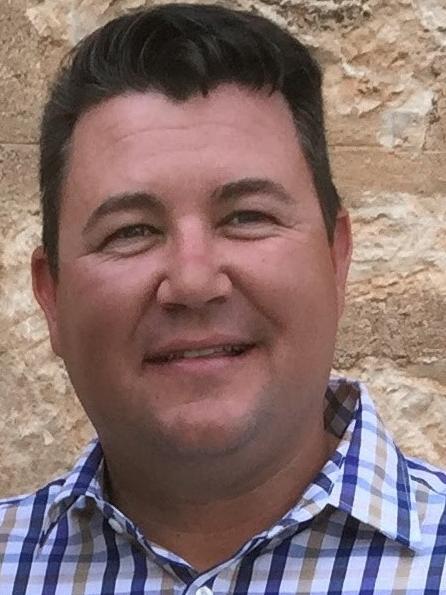
The pair set up fertiliser importer Interfert Australia Pty Ltd in February, 2005, and used a related company, Megafert Pty Ltd, to sell the imported product to fertiliser distributors in Victoria, NSW and South Australia, backed by National Australia Bank.
At one stage, they used company funds to buy motor boats in the US for their personal use, transporting them to Australia on the top of fertiliser cargo ships.
When fertiliser bought in early 2008 suddenly devalued when the Australian dollar crashed later that year, NAB got worried and employed insolvency expert McGrathNicol to investigate.
McGrathNicol told NAB Megafert and Interfert Australia were insolvent but the bank kept them afloat. The debt to NAB ballooned out from $70 million to $139 million by late 2009.
NAB demanded Mr Evans and Mr Simper repay $40 million and it would write off the other $99 million.
Mr Evans and Mr Simper had $27.5 million in their accounts but swept $12.5 million in pre-payments from fertiliser distributors through a sham company Interfert Fertilisers Pty Ltd, then owned by Paul Duckett, an associate of Mr Simper.
The combined $40 million was paid to NAB on February 13, 2010, to clear the debt. The fertiliser distributors only received some of their product.
Both Megafert and Interfert Australia were kept alive until May, 2011, when they were placed in liquidation.
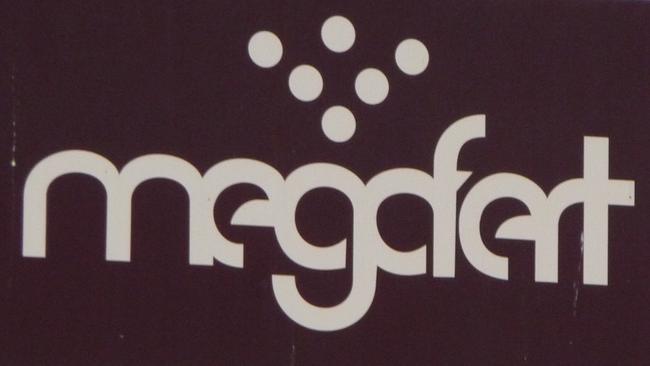
Wash-up:
Interfert Australia creditors were paid about 6.6 cents in the dollar in March, while the victims of Megafert received about 2.4 cents in the dollar.
About $50 million was left owing to unsecured creditors.
The fertiliser distributors sought restitution from NAB and, in late 2019, the bank settled at 17.5 cents in the dollar, or $1.2 million.
Mr Evans and Mr Simper have deregistered many of their companies in the past three years.
Mr Evans continues to live in his home town of Balaklava in South Australia’s Mid North, while Mr Simper lives in Semaphore, near Port Adelaide.
ONE WORLD GRAIN
MID WEST MILLING
GRAINASSIST MARKETING
AUSTRALASIAN INTEGRATED COMMODITIES
ALISTAIR BEAUMONT
PATRICK COLEMAN
When grain trader Alistair Beaumont’s One World Grain collapsed in October, 2012, it wasn’t long before other companies in his network fell like a pack of cards.
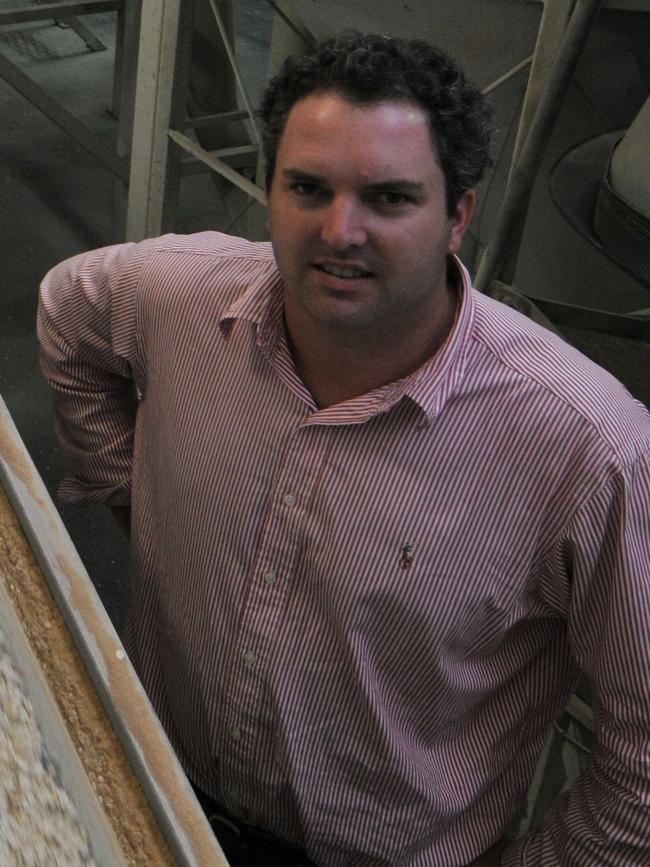
One World Grain, which also had the company’s Laverton packing plant manager Patrick Coleman as a director, was placed in administration with debts of about $4 million owed to 81 unsecured creditors and $1.3 million to National Australia Bank.
The company shipped grain to Vietnam, Indonesia, Malaysia and New Zealand. It turned over $15.7 million in revenue in 2010.
But within two years, One World Grain got into financial trouble with hedging losses and bad debts.
Administrator Robyn Erskine told creditors in 2012 she believed the company had traded while insolvent from its inception in 2009, a claim denied by Mr Beaumont and Mr Coleman.
NAB placed another Beaumont company, Mid West Milling, into receivership on May 30, 2013, to recoup its funds. Mid West Milling ran a grain mill once owned by Lowan Wholefoods in Nhill, Western Victoria.
A week later, GrainAssist Marketing was placed in receivership. GrainAssist Marketing was established as a grain broker, but later its main business was as a software provider to the Beaumont company network.
Another week passed before parent company Australasian Integrated Commodities was also put into receivership, on June 13, 2013.
It was about 92 per cent owned by Mr Beaumont, with Mr Coleman and others holding small shareholdings.
Australian Securities and Investments Commission documents show about $12 million was lost by the four companies, although it may be much less than that.
Wash up:
A number of creditors, including Brenton Strauss’ Sapphire (SA) at Murray Bridge and Godde’s Grain and Fertiliser at Culcairn in NSW, bought the One World Grain’s Laverton packing plant, running the operation as GrainPac.
Most of the Beaumont companies were deregistered from 2015 to 2019.
Alistair Beaumont established a new business, Consolidated Port Services, two years ago, which registered at the address of Country Link Rural Suppliers at Lara.
CONVECTOR GRAIN
DEAN HARRIS
Laverton-based Convector Grain marketed itself in early 2013 as a grain marketer with “unprecedented success in the export market, particularly in the Asia Pacific”.
When grain growers became worried in autumn of 2013 about Convector’s slow grain payments – usually an ominous sign that something was wrong – at least two approached ANZ Bank about the financial status of its client. ANZ had taken over from NAB as Convector Grain’s financier by February that year.
The growers were told by ANZ there was no financial risk.
Within weeks, Convector Grain collapsed, but its director and principal Dean Harris did not place it in administration until August 26. It had debts of $16.8 million owed to nearly 300 creditors.
A number of creditors threatened legal action against ANZ, which stood to lose $1.8 million in the failure. But it appeared to be mostly sabre rattling.
Some creditors proposed a Deed of Company Arrangement to resurrect Convector, but that did not go far.
Ironically, Michael Long, of LGL Commodities, and Brenton Strauss, of Sapphire (SA), joined the committee of creditors to oversee the liquidation of Convector Grain. Both of them later went bust.
Wash up:
Convector Grain’s grain packing plant at Laverton North was sold to Riordan Grain for a reputed $1.98 million.
The whereabouts of Dean Harris are unknown.
SAPPHIRE (SA)
BRENTON STRAUSS
When Brenton Strauss attended the first creditors meeting of his collapsed grain trading company, Sapphire (SA) Pty Ltd, a number of farmers owed money were gobsmacked when he told them he had been through a number of divorces and knew how to work the legal system to protect his businesses.
And that is essentially what has happened.
Mr Strauss is the only one of the few agricultural businessmen whose companies went belly up to be taken to court by the Australian Securities and Investments Commission. He was virtually slapped over the wrist with a feather.
Mr Strauss had an elaborate web of companies, all named after gemstones.
Sapphire (SA) – which traded as River City Grain Co in Victoria, NSW and Queensland and as RiverCity Grain Co in SA – collapsed on March 14, 2014 with debts of about $13 million, about half owed to NAB and the rest to about 170 unsecured creditors, mostly grain growers, trucking companies and other traders.
One week prior to the collapse, Whites Hill (SA) Pty Ltd, was set up, with Peter Jacobs the sole director.
The new business traded as River City Grain – very similar to River City Grain Co.
Mr Strauss, who ran the company, transferred a number of contracts from the Sapphire-River City operation over to the Whites Hill/River City Grain business and took grain suppliers to court to enforce the contracts.
Wash-up:
Mr Strauss is still running Whites Hill as a business.
Liquidator Tony Matthews, of Anthony Matthews and Associates, took two bankruptcy actions against Mr Strauss for non-payment of two consent orders made against the grain trader in the courts. But that was for money that will go back to Mr Matthews, not unsecured creditors.
The bankruptcy actions have been withdrawn.
In 2015, ASIC took enforcement action against Mr Matthews over his handling of the Sapphire (SA) administration.
More than $10 million is still owed to 171 unsecured creditors.
BELMARK RURAL
MARK AND BELINDA EMONS
Mark Emons was lauded as a “whistleblower” in the Iraqi kickbacks scandal against single desk wheat marketer AWB Limited.
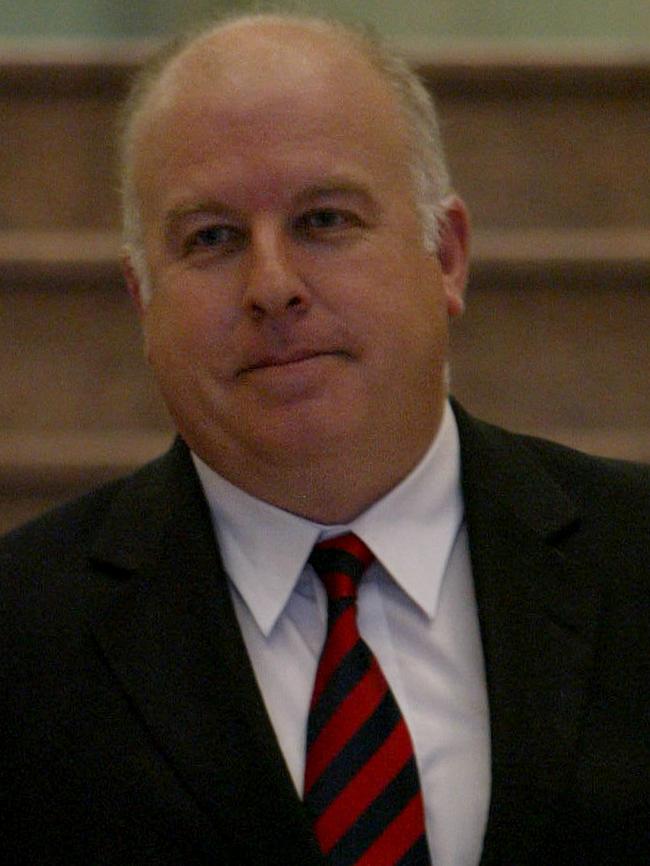
But in a Victorian Supreme Court hearing brought by the Australian Securities and Investments Commission in 2015, he was accused of skimming millions of dollars off illegal payments made by AWB to Saddam Hussein’s Iraqi regime during what became known as the Food For Oil scandal.
Mr Emons denied the allegations and claimed some of the funds landing in his bank account were from his deceased mother’s estate, although he was scant in providing evidence.
In handing down findings a year later, Justice Ross Robson described Mr Emons as an “untruthful” witness who might have skimmed funds in illicit payments in 2000.
While Mr Emons might have been regarded as a whistleblower in that scandal, he could not stop the family company he managed, Belmark Rural, from going belly up.
Belmark Rural was a stockfeed retailer, with shopfronts at Cranbourne and Mornington, and largely supplied the local thoroughbred horse industry with stockfeed.
Its turnover peaked at $14.5 million.
Administrators were appointed to Belmark Rural on April 17, 2014, after changing its name to Kramleb.
Scottish Pacific was owed $1.1 million, Australian Independent Rural Retailers $4 million and 147 unsecured creditors $4.8 million.
Mr Emons claimed costs of $750,000 to settle legal and taxation issues resulting from the AWB Royal Commission, plus competition, the 2008-09 Global Financial Crisis, tightening credit terms with suppliers, and slower debtor payments contributed to the company’s demise.
AIRR ended up buying the business under a Deed of Company Arrangement.
Wash up:
Three secured creditors ended up $2.1 million out of pocket.
Nearly 150 unsecured creditors received just two cents in the dollar under the DoCA: chickenfeed.
Kramleb/Belmark Rural is in the process of being wound up.
LGL COMMODITIES
MICHAEL LONG
TIM GRIFFITHS
MARK LONG
Former AWB grain trader Michael Long rose to fame in the Oil For Food scandal posing with an M-16 assault rifle in Iraq about 2005 while sorting out a wheat deal gone wrong under his codename “Agent Proton”.
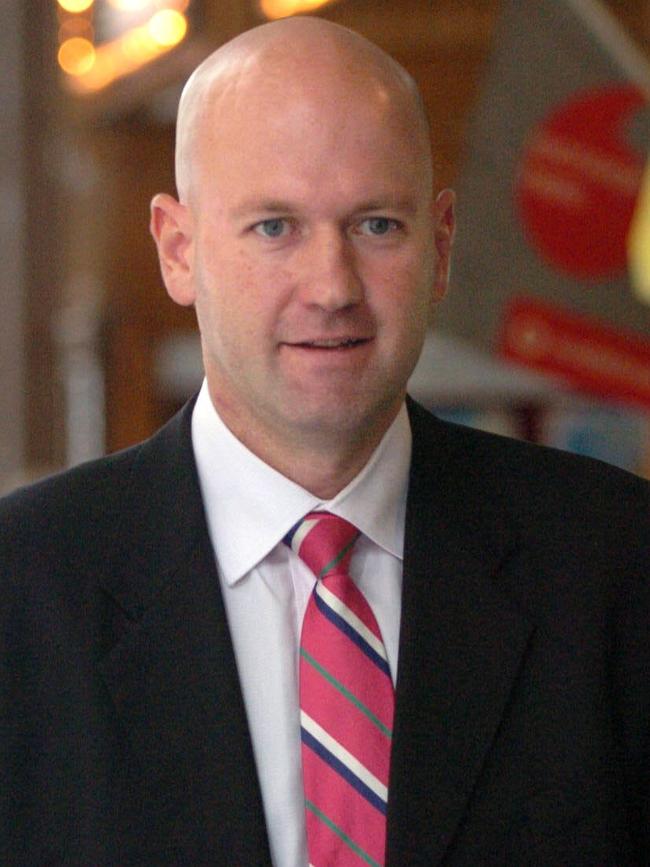
That bravado later played out years later when a dispute arose over a black BMW that was repossessed after his grain trading company, LGL Commodities, folded in 2014.
Mr Long established LGL Commodities, in November 2009, with brother Mark Long and Tim Griffiths. The name LGL was taken from the initials of their surnames.
Mr Griffiths handled the day-to-day operations at Tamworth, while Michael Long worked for the business from Melbourne.
LGL lost $300,000 in the Convector Grain collapse and Michael Long was appointed to its committee of creditors in August, 2013.
Within months, it secured $1.5 million in funding from health care billionaire Paul Ramsay in return for a 25 per cent stake in the grain trader, and the three LGL directors celebrated by giving themselves a $77,000 Christmas Eve bonus to share between them.
But by June, 2014, LGL was placed in administration after ANZ pulled the plug on funding.
LGL’s debt was about $13.4 million, with $4 million owed to ANZ.
Administrators Andrew Yeo and Gess Rambaldi reported poor record keeping, foreign exchange gains booked as “illusionary” assets and inaccurate stocktakes as factors behind LGL’s downfall.
A Supreme Court examination in July, 2015, revealed a comical dispute over ownership of the luxury black BMW car once driven by Michael Long. It was repossessed by the LGL administrators who placed it in a Grays Online caryard for auction, even though Mr Long held the keys.
It was taken from Grays’ caryard and driven back to Mr Long’s driveway by “persons unknown”.
Wash-up:
LGL is still in administration.
Michael Long is chief operating officer of ASX-listed Wingara Ag.
Tim Griffiths placed himself in bankruptcy in 2017 or 2018.
BAROOGA AGRIPRODUCTS
ANDREW LEIGHTON-DALY
A betting Ponzi scheme, fraudulent grain contracts, a burnt body and rumours of loans from the mafia: the fallout from the collapse of Barooga Agriproducts had everything.
Former undercover policeman Andrew Leighton-Daly took over Barooga Agriproducts from the Brooks family in 2011, operating out of the family’s grain receival site in Barooga, NSW, buying and selling grain.
In July, 2016, the company’s financier, Scottish Pacific Business Finance, was becoming concerned about $2.5 million in outstanding debtor finance it provided to the grain trader.
A source told The Weekly Times, Mr Leighton-Daly falsified some invoices for grain purportedly bought from growers but never delivered.
It was alleged the invoices were submitted to Scottish Pacific, which paid Mr Leighton-Daly 80 per cent of the value in advance. He pocketed the funds.
Auditors were sent to Barooga Agriproducts’ office on Monday, July 18, 2016, the same day Mr Leighton-Daly was due to take a one-way flight to the UK but never boarded.
No one had seen Mr Leighton-Daly since two days earlier when, as president of the Barooga Football Club, he attended the match against Numurkah.
Scottish Pacific appointed receivers to Barooga Agriproducts on July 22, a day before Mr Leighton-Daly’s body was found in a burnt out car in bushland near the Murray River border town of Tocumwal.
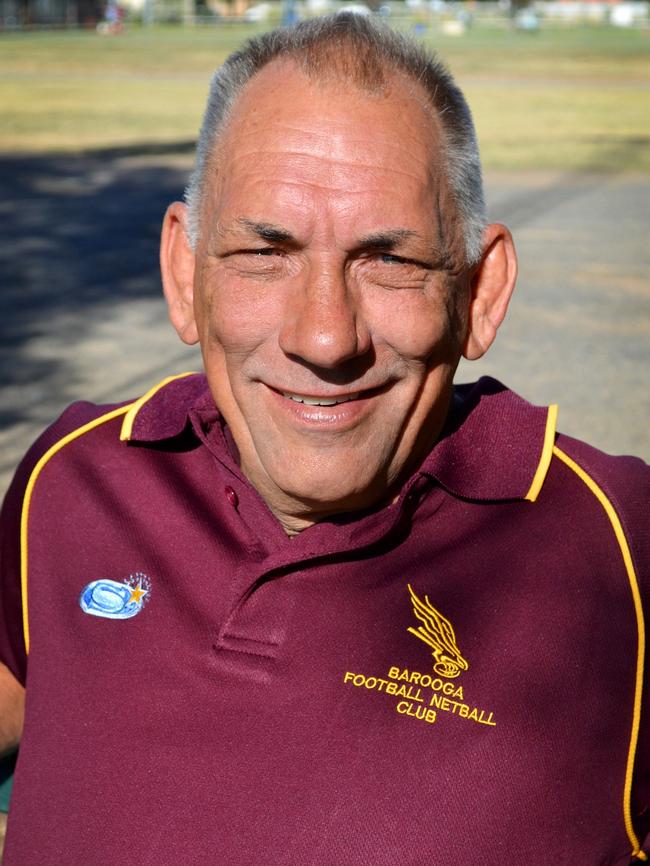
It later emerged he was about $6 million in debt and Barooga locals believed he had been caught up with controversial horse racing tycoon, Bill Vlahos, whose betting Ponzi scheme left hundreds of clients $150 million worse off.
Mr Leighton-Daly was involved in five syndicates, buying horses through OTI Management Pty Ltd, the thoroughbred investment business of former Australian Test cricketer Simon O’Donnell and partner Terry Henderson.
Local speculation also suggested the grain trader might have borrowed money from NSW mafia identities, although no proof ever emerged.
Wash-up:
SPBF clawed back what it was owed, but 48 unsecured creditors lost $3.9 million.
Barooga Agriproducts was deregistered in August last year.
NANT WHISKY, NANT ANGUS
KEITH AND MARGARET BATT
When investors in the Nant Whisky scheme found some of the barrels in the Tasmanian distillery were bone dry, it sent alarm bells ringing in a similarly named Angus breeding operation, Nant Angus.
Nant Angus investors soon found out they had been conned as well, buying cattle that may not have existed, were double sold to other investors or held in the names of other people unrelated to the cattle scheme.
Keith and Margaret Batt were directors of the companies behind both Nant schemes.
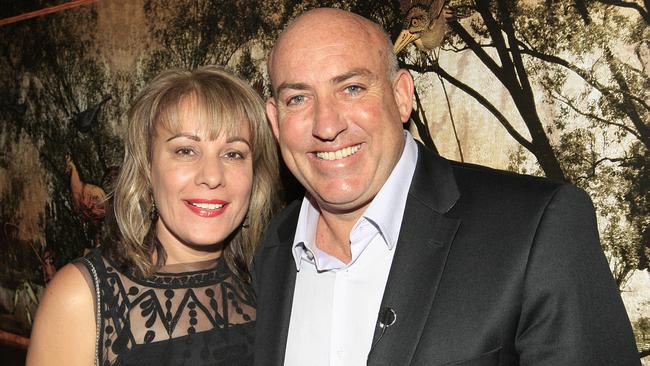
Mr Batt was made a bankrupt in December, 2015, over a failed Mackay property scheme, so transferred his director positions and ownership of companies to his wife, who sometimes went by the name of Margaret Letizia.
A significant feature of the Nant Whisky investment scheme was that investors bought units of whisky, which would be sold back to Nant after five years at a price earning them an annual compound return of 9.55 per cent. Investors outlaid about $18 million in the scheme.
Former Australian Test cricketer Matthew Hayden was contracted to promote the whisky scheme in 2014 but halfway through the first year of the deal, the money dried up.
In the Nant Angus investment scheme, investors paid $30,000 a unit, which gave them ownership of 10 Angus cattle for each unit. Mr Batt was entitled to the progeny of the cattle and agreed to buy back the original breeding cows after five years for $47,335, giving an annual compound return of 9.55 per cent.
Mr Batt told The Weekly Times in March, 2017, about 30 units were sold, bringing the total outlay by investors to nearly $1 million.
Wash-up:
Nant Angus investors never received a cent.
All but a couple of the Batt’s myriad of companies are either in external administration or deregistered.
The Tasmanian fraud squad is believed to be still investigating the Nant Whisky investment scheme.
SPECIAL ONE GRAIN ACCUMULATOR
JAMES MOORE
GREG RUMMERY
FIONA DENYER
DAVID BERRELL
Special One Grain Accumulator collapsed in October 18, 2018, with debts of $16.4 million to 85 unsecured creditors. NAB was owed $6.1 million.
The bank suspended its trade finance facility six days before the SOGA directors placed it in administration after the company failed to meet its lending covenants.
The company was a subsidiary of Walgett Special 1 Co-operative, a co-operative of grain farmers centred around the northern NSW town of Walgett. Walgett Special 1 Co-op lodged a creditor’s claim for $1.66 million.
Some of the other biggest creditors who took a big hit on SOGA’s collapse were Wilken Storage at $468,000, Ridley Agriproducts at $447,0000, and Louis Dreyfus at $593,0000.
In the two years prior to its collapse, it was carrying out grain sales of $75-$83 million. But margins were tight, and the company made a $713,000 profit in 2016-17 and a loss of $2.47 million the following year.
Importantly, SOGA’s net assets were in deficit for at least three years before its collapse.
Administrators were appointed in October, 2018, but later became liquidators on March 6, 2019.
Drought, trading losses and an undercapitalisation of the company were contributing factors.
The liquidators’ report of February, 2019, indicated company directors were continually assessing the solvency of the company during 2018.
“We are of the opinion that the company has been balance sheet insolvent since at least 1 July 2017,” the liquidators said.
But it said in the report they had “not found that any of the directors have acted negligently, dishonestly and/or fraudulently in the exercise of their powers and discharge of their duties”.
Wash up:
Special One Grain Accumulator is still in administration.
ALL COMMODITIES
JAMIE AND DIANE CHAPMAN
All Commodities traded in grain since 2012. Directors Jamie and Diane Chapman placed the company in voluntary liquidation on February 5, 2019.
It had already ceased to trade by then, with Mr Chapman claiming it was still solvent, with surplus assets of about $1 million.
But after its collapse, creditors came forward, indicating claims of more than $3 million. These included forward contracts for grain where no agreed “washout” amounts were determined, according to liquidator Bill Cotter, of the Robson Cotter insolvency group.
Mr Chapman was a creditor and debtor of Brenton Strauss’ Sapphire (SA), which failed in March 14, 2014.
But a week before the collapse, Mr Strauss reassigned an almond hull contract Sapphire (SA) held with All Commodities to ensure the $21,000 owed went to the new company he managed, Whites Hill.
Mr Chapman argued in Magistrates Court of South Australia in 2015 the funds belonged to Sapphire (SA).
Wash-up:
All Commodities was deregistered last December.
LEMPRIERE GRAIN
AJAY AGGARWAL
JONATHAN HOLDSWORTH
WILL LEMPRIERE
Grain buyer Lempriere Grain only made a profit only one year out 10 before it collapsed on March 21, 2019, with debts of $19.4 million.
But in a public examination before the Federal Court, lawyers for the liquidators suggested it should have been wound up almost a decade earlier, sparing growers hefty losses.
Lempriere Grain was half owned by Singaporean company Starcom Resources, run by Indian-born businessman Ajay Aggarwal, an associate of British steel tycoon Sanjeev Gupta.
The other half was owned by companies of well-known Melbourne businessman Will Lempriere, a scion of wool industry trail blazer Michael Lempriere.

The Lemprieres once owned a stake in Cubbie Station in partnership with a Chinese consortium, CS Agriculture. Will Lempriere was also a director of CS Agriculture.
It was the family’s solid reputation in the wool industry that enticed grain growers to sell to Lempriere Grain.
Mr Lempriere was a director from Lempriere Grain’s inception in August, 2003, until he resigned in January, 2018.
In the Federal Court last week, Mr Lempriere said he had no operational involvement in Lempriere Grain. But as director, along with Mr Aggarwal and Mr Holdsworth, he was responsible to ensure the company was not trading while insolvent.
In the eight years prior to Mr Lempriere’s resignation, the company only made a modest profit of $2.3 million in 2016.
But total assets were always in deficit from 2009 to 2019.
Wash-up:
More than 140 unsecured creditors are still owed $19.4 million, although Starcom Resources is claiming $9.9 million of that and Mr Holdsworth $36,500.
Mr Aggarwal is currently in Romania working as a consultant to a Gupta steel company, Liberty Steel.
His Starcom companies are in the process of being wound up as a result of an international financier pulling the plug on the business when Lempriere Grain was placed in liquidation.
Mr Lempriere is a director of the Seafresh fish business and is a beneficiary of his family’s trusts.
Mr Holdsworth has a contract to work as commercial manager for meat exporter InterAgri Group.
DALGRAINS (QLD)
TOBIN AND STEPHANIE CHERRY
The interrelationship between grain traders was probably no more evident than with the collapse Dalgrains (Qld) Pty Ltd in May, 2019, with debts of $19.3 million.
It was a victim of the collapse of two other grain traders: Special One Grain Accumulator, which owed $584,000 and All Commodities, with $1.5 million owed. It also lost $233,500 in the collapse of LGL Commodities in 2014.
While $2.1 million owed by the two collapsed companies was put up by the directors as a reason to put Dalgrains in liquidation, there were clearly a much bigger shortfall in assets over liabilities.
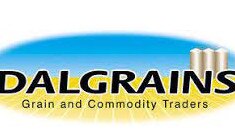
The liquidators’ report of August, 2019, showed assets of $10.9 million at the time, but in the end, only $5.4 million was realised.
Dalgrains (Qld) was a small grain trader operated by Tobin and Stephanie Cherry, of Dalby.
Andrew Johnston and John Cullen, both of Dalby, were part-owners and directors until January, 2019, but jumped ship just before the collapse.
Wash-up:
The latest report, lodged with ASIC in June last year shows 52 unsecured creditors are still owed $6.2 million, while NAB is owed $1 million.
GRAINWORKS OPERATIONS
TIM OAKLEY
A creditors’ report alleges small-time grain trader Tim Oakley siphoned off substantial amounts of money earned by his company, Grainworks Operations, to pay personal expenses.
This included $143,500 to help pay the mortgage on the Echuca house jointly owned with his partner Michelle Cain.
According to a creditors’ report by liquidator Paul Vartelas, the personal drawings exacerbated Grainworks Operation’s cash flow, and along with poor financial records, were the major factors in its demise.
The company was placed in administration on August 20, 2019, with debts to about 40 creditors of $1.47 million, including $163,000 owed to the Commonwealth Bank of Australia.
Mr Oakley would not face creditors at meetings convened by Mr Vartelas, claiming “fear of being assaulted and experiencing the symptoms of a mental breakdown”.
He claimed Grainworks Operations failed due to poor grain seasons – hotly disputed by growers owed money.
Mr Vartelas’ report said there was reasonable grounds Grainworks Operations had traded while insolvent and had incurred debts of nearly $1.3 million during this period.
It said Mr Oakley did not appear to have substantial personal assets to satisfy any judgments made against him.
Wash up:
Mr Oakley has offered $100,000 to settle all claims against him, to be paid by an unnamed third party.
Mr Vartelas is claiming nearly $190,000 in remuneration, leaving nothing for creditors.
Creditors have been told Mr Oakley is working in Sydney for a construction company.
IRELANDS ANGUS
COREY AND PRUE IRELAND
Corey and Prue Ireland had the world at their feet.
Mr Ireland was regarded as the bloke women wanted their daughters to marry and Ms Ireland came from Adelaide’s social set, counting Gillon and Hamish McLachlan and Merridee Jackson, the daughter of former AFL supremo Wayne Jackson, among her friends.
Designer clothes, Range Rovers and overseas trips created images of a wealthy lifestyle.
The Irelands had built their Irelands Angus cattle breeding operation on a picturesque 125 hectare farm, Ivydell, at Kyeamba, south of Wagga Wagga in NSW, from about 2003.
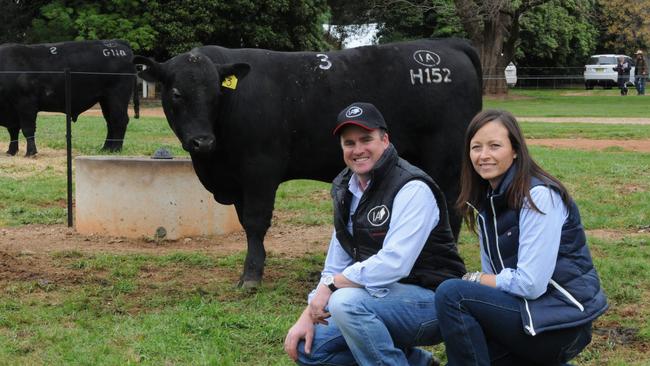
Mr Ireland often convinced investors to buy Angus cattle, he would look after them and profits from the progeny would be shared on 50:50 basis.
Westpac lent them $3.5 million, backed by security the bank took over 1654 cattle.
In November, 2019, East Coast Stockfeeds successfully got a court order to wind up CD & PJ Ireland, the family trustee company.
That set off a train of events, which saw Westpac seek to appoint receivers over the Angus cattle.
In April last year, Mr Ireland was charged by NSW Polices’ Rural Crime Unit with eight counts of fraud, alleging he entered into joint business ventures with farmers and on-sold cattle that either did not exist, were deceased or had been on-sold without investors’ knowledge.
A further five charges were added last November and the Director of Public Prosecutions took over the case in December.
Wash-up:
The Ireland Angus herd was sold last December, with Westpac likely to share proceeds with other claimants.
Ivydell was sold about five months ago, with about $4 million in proceeds sitting in a Westpac bank account, with a number of creditors eyeing it off.
Mr Ireland landed a job with Macka’s Australian Black Angus Beef near Gloucester, NSW.
Ms Ireland is SA manager for the Business Advice Agency, which aims to help small businesses prosper.
MORE


